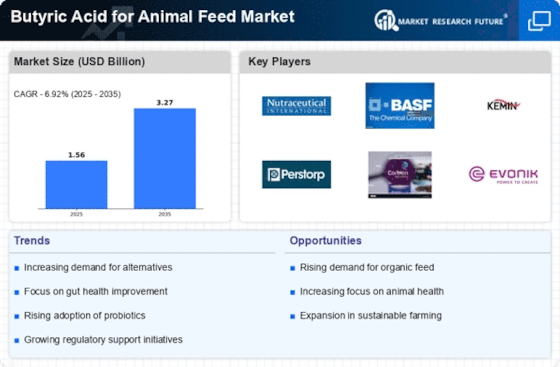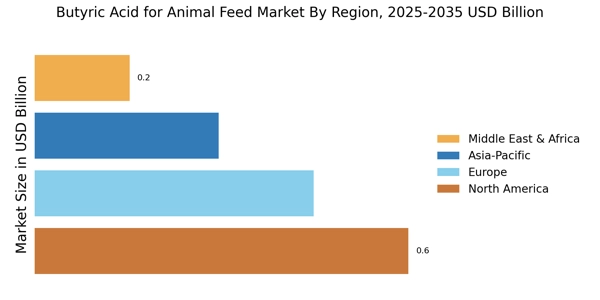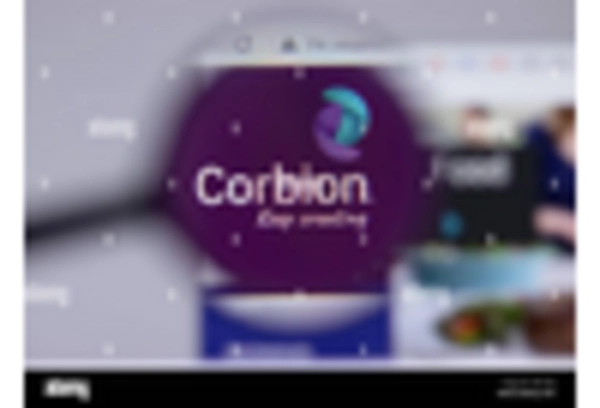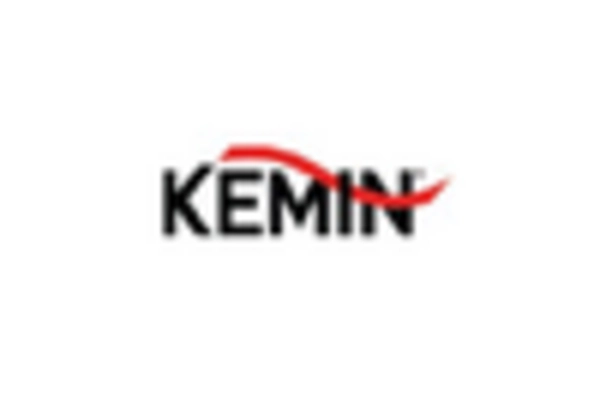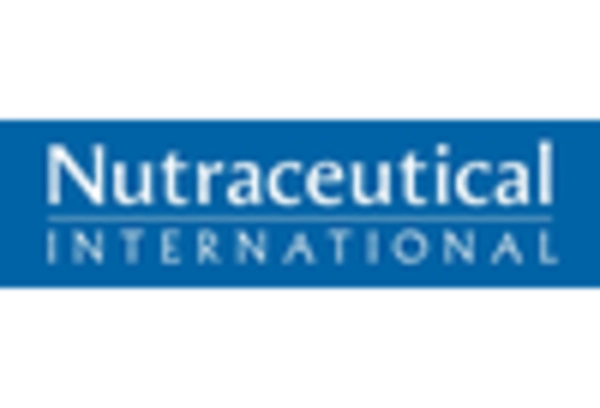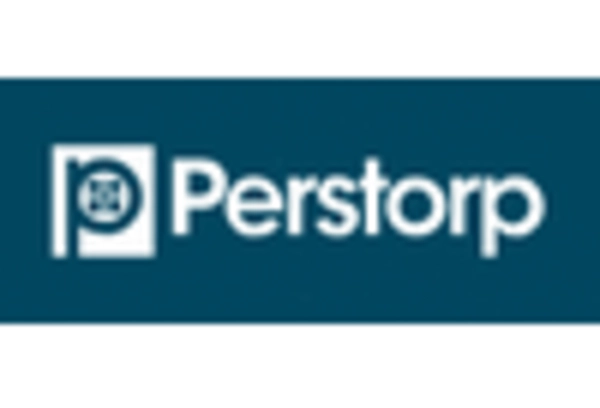Increasing Awareness of Animal Health
The Butyric Acid for animal feed Market is experiencing a surge in demand due to the increasing awareness of animal health among livestock producers. As consumers become more conscious of the quality of animal products, producers are compelled to enhance the health and well-being of their livestock. Butyric acid, known for its beneficial effects on gut health, plays a crucial role in improving feed efficiency and overall animal performance. This heightened focus on animal health is likely to drive the adoption of butyric acid as a preferred feed additive, thereby expanding its market presence. Furthermore, the market for butyric acid is projected to grow at a compound annual growth rate (CAGR) of approximately 6% over the next few years, indicating a robust demand trajectory.
Growing Interest in Gut Health Solutions
The Butyric Acid for Animal Feed Market is experiencing a growing interest in gut health solutions among livestock producers. With the increasing recognition of the gut's role in overall animal health and productivity, there is a heightened focus on feed additives that promote gut health. Butyric acid is particularly effective in enhancing gut integrity and function, making it a sought-after ingredient in animal feed. This trend is likely to drive the demand for butyric acid, as producers aim to improve feed efficiency and reduce reliance on antibiotics. The market for butyric acid is projected to grow as more producers incorporate gut health solutions into their feeding strategies, potentially leading to an annual growth rate of 5% in the coming years.
Shift Towards Sustainable Farming Practices
The Butyric Acid for Animal Feed Market is witnessing a notable shift towards sustainable farming practices. As environmental concerns gain prominence, farmers are increasingly seeking natural and sustainable feed additives to reduce their ecological footprint. Butyric acid, derived from natural sources, aligns with this trend by offering a viable alternative to synthetic additives. The adoption of butyric acid not only supports animal health but also contributes to sustainable agricultural practices. This alignment with sustainability is expected to bolster the market, as more producers recognize the long-term benefits of incorporating butyric acid into their feeding regimens. The market is anticipated to expand as regulatory frameworks increasingly favor sustainable practices, further enhancing the appeal of butyric acid in animal feed.
Technological Advancements in Feed Production
The Butyric Acid for Animal Feed Market is benefiting from technological advancements in feed production. Innovations in feed formulation and processing techniques are enabling the effective incorporation of butyric acid into animal diets. These advancements not only enhance the bioavailability of butyric acid but also improve its stability during storage and feeding. As feed manufacturers adopt these new technologies, the efficiency and effectiveness of butyric acid as a feed additive are likely to increase. This trend is expected to drive market growth, as producers seek to optimize their feed formulations for better animal performance. The integration of advanced technologies in feed production could potentially lead to a market growth rate of around 7% over the next few years.
Rising Demand for High-Quality Animal Products
The Butyric Acid for Animal Feed Market is significantly influenced by the rising demand for high-quality animal products. Consumers are increasingly prioritizing the nutritional value and safety of meat, dairy, and egg products. In response, livestock producers are focusing on improving the quality of their products, which necessitates the use of effective feed additives. Butyric acid has been shown to enhance nutrient absorption and promote gut health, thereby improving the overall quality of animal products. This trend is likely to drive the demand for butyric acid in animal feed, as producers seek to meet consumer expectations. Market analysts project that the demand for butyric acid could increase by approximately 8% annually, reflecting the growing emphasis on quality in the animal husbandry sector.


